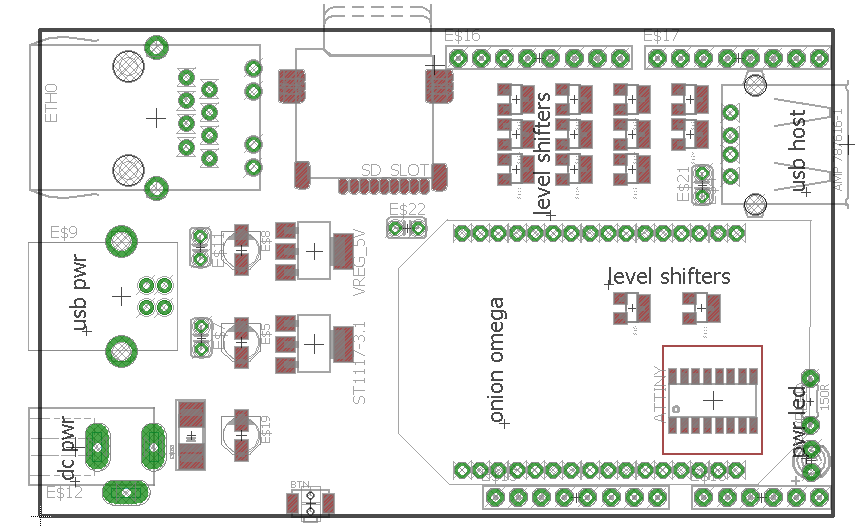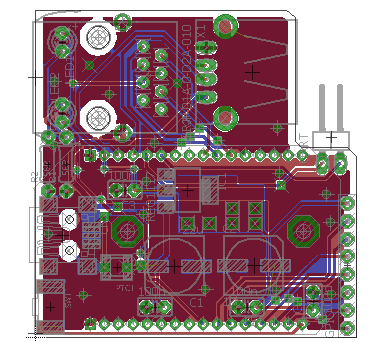@Paul-Wright i'd suggest a catogory for hardware as well
Best posts made by ramon schepers
-
RE: Comments/Suggestions for Building a Better Onion Communityposted in Omega Talk
-
RE: a hardware ideaposted in Omega Talk
i saw those articles, which made me wonder about the 16mb onboard flash

also, just thinking of something else with the omega, namely a all in one adapter board, with:
arduino-style header adapter with the needed level shifters, power, ethernet, microsd and analog potmeters using an attiny for analog to serial reads.
please tell me your opinion on this.

-
picorouter baseboardposted in Projects
Intro
i am developing a picorouter for the onion omega
The target is to have enough functionatlity to act similar as a wr703n, but in a smaller form factor while still being easy to hack.Image of board R03:

Specs
onion omega pinheaders
46x47mm (was: 46*49mm on R2-01 and before) (surface: roughly 21 square cm)
ethernet port (with built in transformers) x1
usb port x1 (moved inwards for a micro usb stick without sticking it out too much (prevents damage ))
))
3.3v ldo (st1117 3.3v fixed regulator)
usb power in
power leds on the ethernet jack
GPIO: 6 on a header (with 3.3V and GND lines)
rx/tx available as well
Todo
case design(?)
pcb checking and such
Changelog:
current version: R03
R03:
reset-able 500mA fuse on USB +VIN line
increased input capacitor from 10u to 22u
changed LED 13 to GPIO13 instead of +3V
both led resistors to 56ohm instead of 220ohm (increases led brightness)
small routing imporvementsR02-2:
fixed the ethernet shielding and added required voltage lines for the transformers in the ethernet jack
slightly smaller in heightR02-1 has no additional features, except that the overlapping rx-tx signals are fixed.
Files/downloads
download links below:
if you want to order board R02-2 right away (about $17 for 3 pcb's) :
https://oshpark.com/shared_projects/FGrlPzE9
Assembling
0: check if there are manufacturing errors with a mulitmeter!
1: solder all components on their place, beginning with the smt ones (ldo, usb mini, caps)
2: solder connectors and (pin)headers
3: check if there are soldering errors with a mulitmeter!
4: plug in the onion omega
5: optional: plug in microusb stick (or other desired usb device) and/or ethernet cable
6: make sure there's no shortings again (with multimeter)!
7: power up
8: if the green led on the ethernet jack lights up you've done it right.
9: ??? ??? ???
10: profit
Want to help?
You can help realizing this project on multile ways, by:
- suggestions
- ideas
- hardware testing
- case design
- hardware addon design
- pcb designing
- pcb checking
- perhaps your own idea to support this project?
Credits
hardware design: ramon schepers
the omega: onion.io
Licence
you may sell it as your own, use it as your own, but the only thing you need to know is: all responsibility is up to YOU if you do something with it.